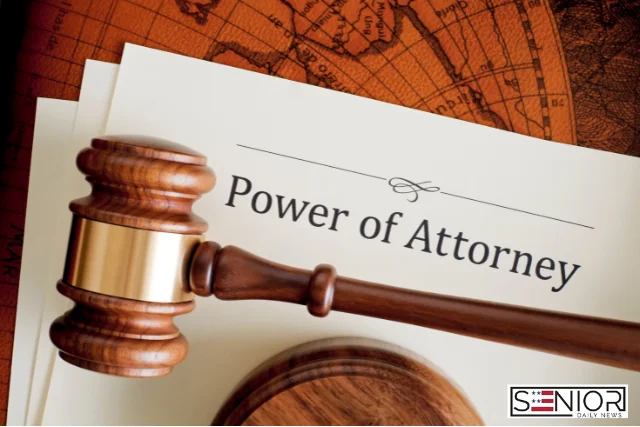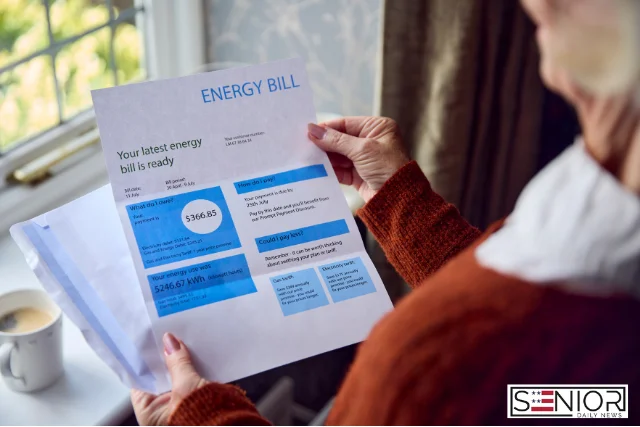Legal Steps to Establish Power of Attorney for a Parent with Dementia

When a parent begins showing signs of dementia, it can feel overwhelming. As memory fades and decision-making abilities decline, families often find themselves facing difficult choices about care, finances, and medical treatment. One of the most important steps you can take to protect your loved one is to establish a Power of Attorney (POA). This legal document ensures that someone trusted is authorized to make decisions on their behalf when they no longer can. For seniors and their families in the United States, understanding the legal steps to set up Power of Attorney is essential to avoid confusion and conflict down the road.
In this guide, we’ll break down what Power of Attorney is, the different types available, and the legal process of establishing it for a parent with dementia. We’ll also discuss timing, challenges, and practical tips for families navigating this sensitive journey.
What Is Power of Attorney?
A Power of Attorney is a legal document that gives one person (the “agent” or “attorney-in-fact”) the authority to act on behalf of another person (the “principal”). For seniors living with dementia, this tool can be a lifeline, ensuring that important financial, healthcare, and personal matters are managed responsibly when they are unable to do so themselves.
Without a valid Power of Attorney in place, families may need to go through a lengthy and costly court process called guardianship or conservatorship to manage their parent’s affairs. Establishing POA early avoids unnecessary complications.
The Importance of Timing
The most critical factor in setting up Power of Attorney for a parent with dementia is timing. Dementia is progressive, meaning it worsens over time. For a Power of Attorney to be legally valid, the parent must still have the mental capacity to understand what they are signing.
If dementia has advanced too far and the parent no longer comprehends the nature of the document, a POA may not be legally enforceable. At that point, guardianship through the courts may be the only option. This is why families are strongly encouraged to act as early as possible, ideally right after a diagnosis.
Types of Power of Attorney
There are different types of POA, and each serves a unique purpose. Choosing the right one depends on your parent’s needs and circumstances.
1. General Power of Attorney
This type gives broad authority to the agent to handle financial and legal matters. However, it usually ends if the parent becomes incapacitated, making it less suitable for dementia care.
2. Durable Power of Attorney
A Durable Power of Attorney remains valid even if the parent loses mental capacity. This is the most common and practical option for dementia, as it ensures continuity of decision-making.
3. Medical or Healthcare Power of Attorney
Also known as a Health Care Proxy, this document authorizes the agent to make healthcare and medical decisions when the parent is unable to. It often works alongside a living will or advance directive.
4. Limited or Special Power of Attorney
This grants authority for specific tasks, such as selling a house or managing one account. It’s less common for dementia cases because needs are typically broader.
In many situations, families create both a Durable Power of Attorney for finances and a Healthcare Power of Attorney to cover all areas of responsibility.
Legal Steps to Establish Power of Attorney for a Parent with Dementia
Setting up a Power of Attorney involves several key steps. Here’s what families should know:
Step 1: Discuss with Your Parent
Although this can be an uncomfortable conversation, it’s crucial to involve your parent in the decision-making while they are still able to participate. Reassure them that POA is not about taking away independence but about protecting them when they need help.
Step 2: Choose the Right Agent
The chosen agent should be trustworthy, organized, and capable of making sound decisions. Often, this is an adult child, spouse, or close relative. It’s important to consider family dynamics to avoid future conflicts.
Step 3: Consult an Elder Law Attorney
While it’s possible to find POA forms online, working with an attorney is highly recommended—especially in dementia cases. An elder law attorney ensures the document complies with state laws and addresses your parent’s specific needs.
Step 4: Draft the Document
The attorney will draft the POA based on the type needed—Durable, Medical, or both. The document must clearly outline the agent’s powers, responsibilities, and any limitations.
Step 5: Sign and Notarize
For the POA to be legally valid, it must be signed while your parent still has the mental capacity. Most states require notarization, and some require witnesses. The attorney can guide you through these requirements.
Step 6: Provide Copies
Once completed, distribute copies to relevant parties such as doctors, financial institutions, and family members who need to be aware. Keep the original in a safe but accessible place.
What If It’s Too Late?
If dementia has progressed and your parent can no longer understand or sign legal documents, a court-appointed guardianship or conservatorship may be necessary. This process involves filing a petition with the court, presenting medical evidence, and sometimes attending hearings. While it grants similar authority to manage your parent’s affairs, it is often more time-consuming, expensive, and emotionally taxing.
Potential Challenges Families Face
Establishing a Power of Attorney for a parent with dementia is not always straightforward. Families may encounter:
- Sibling disagreements about who should serve as the agent.
- Suspicion or resistance from the parent, who may feel their independence is being taken away.
- Legal hurdles, such as strict state laws or disputes over capacity.
- Financial abuse concerns, making it important to choose a responsible agent.
Open communication, legal guidance, and sometimes even mediation can help resolve these issues.
Protecting Your Parent from Exploitation
Sadly, seniors with dementia are vulnerable to financial scams and exploitation. A properly executed Power of Attorney provides a protective barrier, as it allows a trusted person to oversee finances and decisions. However, abuse of authority is also a risk. To safeguard your parent:
- Choose an agent with a strong history of honesty.
- Consider appointing co-agents for checks and balances.
- Keep records of financial transactions.
- Periodically review the arrangement with an attorney.
Emotional Considerations
Beyond the legal steps, families should prepare for the emotional weight of this decision. For many seniors, signing a Power of Attorney feels like giving up control, which can be difficult. Patience, reassurance, and focusing on the benefits—such as protecting their wishes—can help ease the transition.
FAQs About Power of Attorney for Parents with Dementia
1. Can a parent with dementia still sign a Power of Attorney?
Yes, but only if they still have the mental capacity to understand what the document means. If dementia is too advanced, a court may need to appoint a guardian.
2. What is the difference between Power of Attorney and guardianship?
A Power of Attorney is a voluntary legal document signed while the parent is still competent. Guardianship is a court process used when a parent can no longer make decisions and did not set up POA.
3. Can more than one person be named as an agent?
Yes, multiple agents can be appointed, either to act jointly (together) or separately. This can help balance responsibilities but may also complicate decision-making.
4. Does a Power of Attorney expire?
Most POAs remain valid until revoked or the parent passes away. A “durable” POA continues even after the parent becomes incapacitated, which is why it’s most suitable for dementia.
5. How much does it cost to set up Power of Attorney?
Costs vary by state and whether you use an attorney. Online forms may cost less than $100, but attorney fees can range from $200 to $500 or more. Considering the importance of accuracy, many families prefer using an elder law attorney.
6. Can a Power of Attorney be challenged?
Yes, family members can contest a POA if they believe the parent was coerced, lacked capacity, or the agent is abusing their power. Courts may intervene if necessary.
7. Should we set up both financial and medical POAs?
Yes. A financial POA allows management of money and property, while a medical POA ensures healthcare decisions align with your parent’s wishes. Having both provides full protection.
Image Source: Canva






